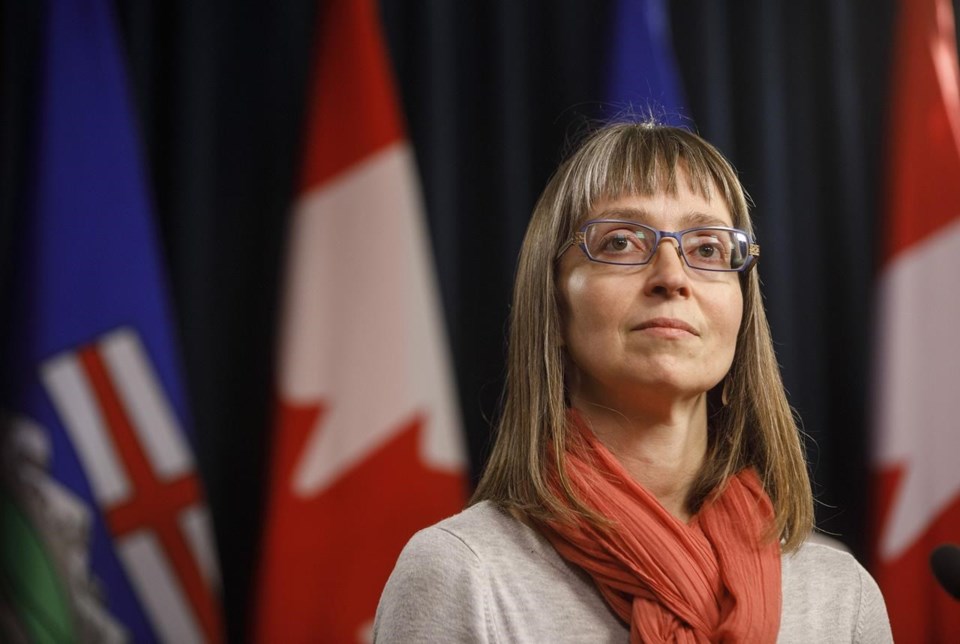EDMONTON — Alberta is banning most visits to long-term care and group homes to try to limit the spread of COVID-19.
"Residents of all continuing-care sites are at extreme risk if exposed to COVID-19, and we are doing everything possible to ensure their safety," the province's chief medical health officer, Dr. Deena Hinshaw, said in a release Tuesday.
"I know this will have a profound impact on the lives of those residents and their families. This is not a step that we take lightly."
Hinshaw is urging Albertans to instead reach out to their loved ones by phone, video "and any other means possible."
No visits are allowed unless a resident is dying or if the visitor is delivering essential care that staff can't provide.
Only one family member, friend or religious leader will be able to visit a dying resident at a time, and they will not be allowed to interact with other residents.
Visitors are to have their temperatures checked and will have to fill out a questionnaire before going inside. Anyone who is sick will not be allowed in and all visitors will have to cover their faces.
The new rules apply to all licensed supportive living, long-term care and other continuing care facilities, as well as residential addiction treatment operators.
On Friday, the province ordered care homes to notify public health authorities, residents, families and staff as soon as anyone shows symptoms.
Staff who work at multiple homes are to immediately inform their supervisors if they are working somewhere with a suspected, probable or confirmed outbreak. In the case of a confirmed outbreak, staff must stick to working at one facility.
As of Tuesday, there were 130 confirmed COVID-19 cases at continuing-care homes in Alberta. Twelve of the province's 26 deaths have been of residents at the McKenzie Towne Continuing Care Centre in Calgary, where at least 52 residents and 36 staff have been infected.
Renee Laboucane, whose mother Doreen Gauvreau died Monday at the McKenzie Towne home, said having a plan for loved ones to communicate with residents is crucial. Her father and uncle are in the same care centre.
"All of our mental health was at risk, as was the mental health of our parents," she said by video at an Opposition NDP news conference Tuesday.
She said staffing levels have also been an issue, as many workers are forced to isolate or have someone compromised at home.
"Start having those honest conversations with staff right now to find out who will continue to work in the event of an outbreak."
Laboucane's cousin Nina Vaughan, whose father was one of the first to be diagnosed with COVID-19 at McKenzie Towne, said she hopes Alberta's United Conservative government learns from what happened.
"I just think it's unfathomable that half of the deaths in the province happened in that one building," she said at the news conference.
"We've got to be able to do better in the next building that has an outbreak like this."
The NDP is calling for hazard pay for front-line workers at seniors' care homes and priority access to personal protective equipment.
It is also urging a ban on staff moving between facilities, a co-ordinated provincial hiring and training plan and stress tests to gauge how well a facility can care for residents if staffing levels drop.
"It's clear that McKenzie Towne was not prepared for the dramatic loss of staff that they are experiencing and we can't let that happen at other residences across the province," NDP Leader Rachel Notley said.
— By Lauren Krugel in Calgary
This report by The Canadian Press was first published April 7, 2020
The Canadian Press



